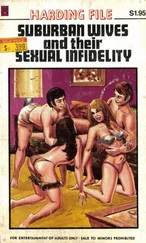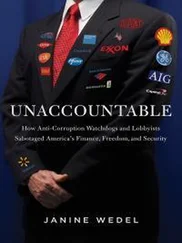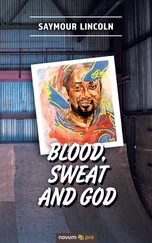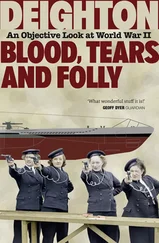Andrea Dworkin - Our Blood - Prophecies and Discourses on Sexual Politics
Здесь есть возможность читать онлайн «Andrea Dworkin - Our Blood - Prophecies and Discourses on Sexual Politics» весь текст электронной книги совершенно бесплатно (целиком полную версию без сокращений). В некоторых случаях можно слушать аудио, скачать через торрент в формате fb2 и присутствует краткое содержание. Жанр: Публицистика, на английском языке. Описание произведения, (предисловие) а так же отзывы посетителей доступны на портале библиотеки ЛибКат.
- Название:Our Blood: Prophecies and Discourses on Sexual Politics
- Автор:
- Жанр:
- Год:неизвестен
- ISBN:нет данных
- Рейтинг книги:3 / 5. Голосов: 1
-
Избранное:Добавить в избранное
- Отзывы:
-
Ваша оценка:
- 60
- 1
- 2
- 3
- 4
- 5
Our Blood: Prophecies and Discourses on Sexual Politics: краткое содержание, описание и аннотация
Предлагаем к чтению аннотацию, описание, краткое содержание или предисловие (зависит от того, что написал сам автор книги «Our Blood: Prophecies and Discourses on Sexual Politics»). Если вы не нашли необходимую информацию о книге — напишите в комментариях, мы постараемся отыскать её.
Our Blood: Prophecies and Discourses on Sexual Politics — читать онлайн бесплатно полную книгу (весь текст) целиком
Ниже представлен текст книги, разбитый по страницам. Система сохранения места последней прочитанной страницы, позволяет с удобством читать онлайн бесплатно книгу «Our Blood: Prophecies and Discourses on Sexual Politics», без необходимости каждый раз заново искать на чём Вы остановились. Поставьте закладку, и сможете в любой момент перейти на страницу, на которой закончили чтение.
Интервал:
Закладка:
copies were bound in paper and distributed, sort of.
Problems with distribution continued, and bookstores,
which reported selling the book steadily when it was in
stock, had to wait months for orders to be filled. Woman
Hating is now in its fifth tiny paperback printing. The book
is not another piece of lost women’s literature only because
feminists would not give it up. In a way this story is
heartening, because it shows what activism can accomplish,
even in the Yahoo land of Amerikan publishing.
But I had nowhere to go, no way to continue as a writer.
So I went on the road—to women’s groups who passed a hat
for me at the end of my talk, to schools where feminist
students fought to get me a hundred dollars or so, to
conferences where women sold T-shirts to pay me. I spent
weeks or months writing a talk. I took long, dreary bus rides
to do what appeared to be only an evening’s work and slept
wherever there was room. Being an insomniac, I did not
sleep much. Women shared their homes, their food, their
hearts with me, and I met women in every circumstance,
nice women and mean women, brave women and terrified
women. And the women I met had suffered every crime,


every indignity: and I listened. “The Rape Atrocity and the
Boy Next D oor” (in this volume) always elicited the same
responses: I heard about rape after rape; women’s lives
passed before me, rape after rape; women who had been
raped in homes, in cars, on beaches, in alleys, in classrooms, by one man, by two men, by five men, by eight men, hit, drugged, knifed, tom , women who had been sleeping,
women who had been with their children, women who had
been out for a walk or shopping or going to school or going
home from school or in their offices working or in factories
or in stockrooms, young women, girls, old women, thin
women, fat women, housewives, secretaries, hookers,
teachers, students. I simply could not bear it. So I stopped
giving the speech. I thought I would die from it. I learned
what I had to know, and more than I could stand to know.
My life on the road was an exhausting mixture of good
and bad, the ridiculous and the sublime. One fairly typical
example: I gave the last lecture in Our Blood (“The Root
Cause, ” my favorite) on my twenty-ninth birthday. I had
written it as a birthday present to myself. The lecture was
sponsored by a Boston-based political collective. They were
supposed to provide transportation and housing for me and,
because it was my birthday and I wanted my family with me,
my friend and our dog. I had offered to come another time
but they wanted me then— en famille. One collective
member drove to New York in the most horrible thunderstorm I have ever seen to pick us up and drive us back to Boston. The other cars on the road were blurs of red light
here and there. The driver was exhausted, it was impossible
to see; and the driver did not like my political views. He
kept asking me about various psychoanalytic theories, none
of which I had the good sense to appreciate. I kept trying to
change the subject—he kept insisting that I tell him what I
thought of so-and-so—every time I got so cornered that I
had to answer, he slammed his foot down on the gas pedal.


I thought that we would probably die from the driver’s
fatigue and fury and God’s rain. We were an hour late, and
the jam-packed audience had waited. The acoustics in the
room were superb, which enhanced not only my own voice
but the endless howling of my dog, who finally bounded
through the audience to sit on stage during the question-
and-answer period. The audience was fabulous: involved,
serious, challenging. Many of the ideas in the lecture were
new and, because they directly confronted the political
nature of male sexuality, enraging. The woman with whom
we were supposed to stay and who was responsible for our
trip home was so enraged that she ran out, never to return.
We were stranded, without money, not knowing where to
turn. A person can be stranded and get by, even though she
will be imperiled; two people with a German shepherd and
no money are in a mess. Finally, a woman whom I knew
slightly took us all in and loaned us the money to get home.
Working (and it is demanding, intense, difficult work) and
traveling in such endlessly improvised circumstances require
that one develop an affection for low comedy and gross
melodrama. I never did. Instead I became tired and
demoralized. And I got even poorer, because no one could
ever afford to pay me for the time it took to do the writing.
I did not begin demanding realistic fees, secure accommodations, and safe travel in exchange for my work until after the publication of Our Blood. I had tried intermittently and mostly failed. But now I had to be paid and safe.
I felt I had really entered middle age. This presented new
problems for feminist organizers who had little access to the
material resources in their communities. It also presented
me with new problems. For a long time I got no work at all,
so I just got poorer and poorer. It made no sense to anyone
but me: if you have nothing, and someone offers you
something, how can you turn it down? But I did, because I


knew that I would never make a living unless I took a stand.
I had a fine and growing reputation as a speaker and writer;
but still, there was no money for me. When I first began to
ask for fees, I got angry responses from women: how could
the author of Woman Hating be such a scummy capitalist
pig, one woman asked in a nearly obscene letter. The letter
writer was going to live on a farm and have nothing to do
with rat-shit capitalists and bourgeois feminist creeps. Well,
I wrote back, I didn’t live on a farm and didn’t want to. I
bought food in a supermarket and paid rent to a landlord
and I wanted to write books. I answered all the angry
letters. I tried to explain the politics of getting the money,
especially from colleges and universities: the money was
there; it was hard to get; why should it go to Phyllis Schlafly
or William F. Buckley, Jr.? I had to live and I had to write.
Surely my writing m attered, it mattered to them or why did
they want me: and did they want me to stop writing? I
needed money to write. I had done the rotten jobs and I
was living in real, not romantic, poverty. I found that the
effort to explain really helped—not always, and resentments still surfaced, but enough to make me see that explaining even without finally convincing was worthwhile.
Читать дальшеИнтервал:
Закладка:
Похожие книги на «Our Blood: Prophecies and Discourses on Sexual Politics»
Представляем Вашему вниманию похожие книги на «Our Blood: Prophecies and Discourses on Sexual Politics» списком для выбора. Мы отобрали схожую по названию и смыслу литературу в надежде предоставить читателям больше вариантов отыскать новые, интересные, ещё непрочитанные произведения.
Обсуждение, отзывы о книге «Our Blood: Prophecies and Discourses on Sexual Politics» и просто собственные мнения читателей. Оставьте ваши комментарии, напишите, что Вы думаете о произведении, его смысле или главных героях. Укажите что конкретно понравилось, а что нет, и почему Вы так считаете.












